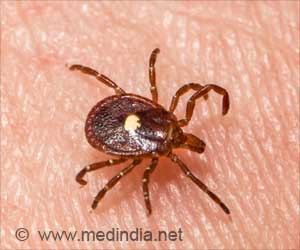Powassan virus disease is a rare ailment transmitted through tick bites. Learn about its symptoms, transmission, diagnosis, management, and prevention strategies.
- Powassan virus disease is an infrequent ailment transmitted through tick bites
- It has the potential to progress to severe conditions such as encephalitis, a brain inflammation
- This virus is prevalent in the northeastern United States as well as the Great Lakes region of both the United States and Canada
Powassan Virus
Go to source). In certain instances, it can even prove fatal. The term "Powassan virus" is derived from the location of its discovery in 1958, namely Powassan, Ontario.
Prevalence of Powassan Virus Disease
Powassan virus disease is an uncommon occurrence, with merely around 200 reported cases in the United States since 2012.Powassan virus infections are most commonly recorded in areas of Russia, the northeastern United States, and the Great Lakes region of the United States and Canada. Predominantly reported cases have emerged in states such as Massachusetts, Minnesota, Wisconsin, New York, New Jersey, Connecticut, and Maine.
Symptoms Associated with a Powassan Virus Infection
Incubation Period:
The incubation span for Powassan virus disease extends from one week to a month. In essence, from the moment an infected tick bites, it generally takes one to four weeks for symptoms to manifest.Symptoms and Signs:
- Fever
- Headache
- Nausea
- Fatigue
- Altered mental state or confusion
- Seizures
- Speech difficulties
- Paralysis
Mode of Transmission of Powassan Virus Disease
Powassan virus is a type of flavivirus, an RNA virus commonly transmitted through mosquitoes and ticks, the causative agent behind Powassan virus infections. Other examples of flaviviruses include the viruses responsible for dengue fever https://www.medindia.net/patients/lifestyleandwellness/top-15-dos-and-donts-for-preventing-and-managing-dengue-fever.htm Top 15 Dos and Don’ts for Preventing and Managing Dengue Fever, West Nile virus, and Zika virus. Transmission of Powassan virus occurs via the bite of an infected Ixodes tick. Ixodes scapularis, also known as black legged or deer ticks, are the primary vectors for human transmission. Although Ixodes cookei (groundhog tick) and Ixodes marxi (squirrel tick) can also harbor the virus, they seldom bite humans. Notably, unlike certain other tick-borne illnesses, Powassan virus transmission can occur within a few minutes of tick attachment.Diagnosis of Powassan Virus
Diagnosis of Powassan virus disease may involve the following examinations:- Blood tests
- Lumbar puncture or spinal tap
- Imaging techniques like CT scans or MRI, especially if neurological symptoms are present
Treatment and Management of Powassan Virus
No antiviral medications specifically target Powassan virus infections. Hospitalization is advised for encephalitis cases. For milder symptoms, individuals can consult healthcare professionals about symptom management at home, including rest, hydration, and over-the-counter medications. In severe cases, hospital-based treatment may involve:- Anti Seizure medications
- Oxygen supplementation or mechanical ventilation
- Intravenous fluids to maintain hydration
- Corticosteroids to mitigate inflammation
- Tube feeding in cases of self-feeding inability
Prevention of Powassan Virus
Mitigating the risk of Powassan virus entails evading tick bites. Precautionary measures include:- Keeping grass below 5 inches in height
- Staying on clear pathways when traversing wooded areas
- Applying tick-repellent bug sprays containing DEET or other proven ingredients
- Donning clothing that covers skin extensively when in grassy or wooded regions
- Thoroughly inspect the entire body for ticks after outdoor exposure, with particular attention to the groin, armpits, neck, and head; assistance might be needed for hard-to-see areas
- Seeking advice from veterinarians to shield pets from ticks and checking pets for ticks regularly
- Cognitive impairment or other mental shifts
- Seizures
- Speech difficulties
- Paralysis
- Powassan Virus - (https://my.clevelandclinic.org/health/diseases/25092-powassan-virus)
Source-Medindia












